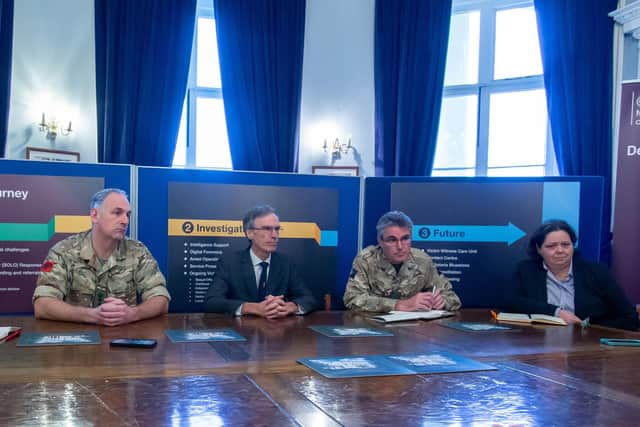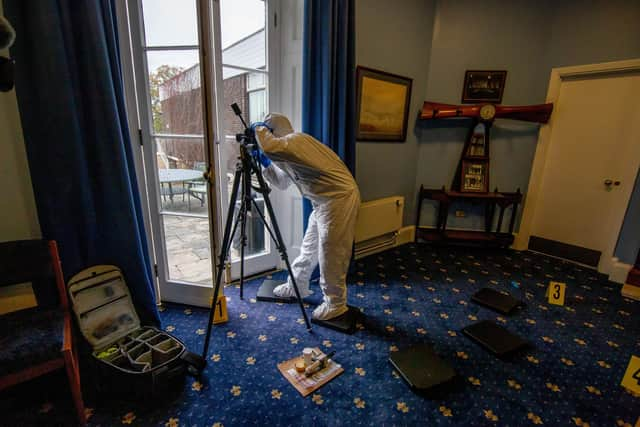Serious crimes on Royal Navy warships could see vessels called home for a new independent investigations unit under military shake-up
and live on Freeview channel 276
Launched today, the Defence Serious Crime Unit (DSCU), based in Southwick Park, has the power to investigate the most serious crimes alleged to have been committed by military personnel in both the UK and overseas.
The unit has the ability to investigate across the armed forces, and will exist independent of any one services’ chain of command.
Advertisement
Hide AdAdvertisement
Hide AdThe shake-up comes amid a series of high profile reports of rape, harassment, and misconduct on the Royal Navy’s submarines and ships.


Last week, the First Sea Lord Admiral Sir Ben Key insisted that independent investigations would be slower and ‘lead to less good outcomes’.
But now investigations will be overseen by the new units’ chief, Colonel Mark John, Provost Marshal for Serious Crimes, who said his ‘only imperative is getting to the crime as quickly as possible.’
Col John said: ‘If there’s an issue around an investigation, for example if something has occurred on a Royal Navy vessel, I would refer that to (the Chief of Defence People) whether that vessel could be diverted, where it would be easier and quicker to carry out that investigation.’
Advertisement
Hide AdAdvertisement
Hide Ad

‘I can decided whether (the victim’s) chain of command needs to know.’
Previously the balance between the military mission and the need to investigate a serious crime would be left to commanders within each service, with the Royal Navy facing decisions from the Sea Lords.
Now Royal Navy warships could be called home for investigations under orders of the Chief of Defence People (CDP) or the Vice Chief of the Defence Staff, according to Lieutenant General James Swift.
As current CDP, Lt Gen Swift said: ‘The provost is absolutely in charge of all the investigatory stuff, but if we need to make that sort of decision of mission versus investigation, that decision would sit with me or the Vice Chief of the Defence staff.’
Advertisement
Hide AdAdvertisement
Hide AdDespite the spotlight on the Royal Navy over serious crimes, the issue was not service specific – but affected the entire military, according to under secretary for defence, Dr Andrew Murrison
Dr Murrison said: ‘We recognise that an organisation like defence needs to be open and transparent – and capable of operating on a tri-service basis. A desire to do what we do in defence is the same as the rest of the UK. I wouldn’t say it’s a specific service.
The under secretary said that the new unit hopes to ‘improve confidence’ in justice for military personnel by increasing its support for victims of serious crimes.
All DSCU investigators will be sexual offences investigator trained, while special investigators will be sent on the Sexual Offences Liaison Officers courses delivered by the College of Policing, as well as to the further training on liaising with families and conducting interviews to gather evidence.
Advertisement
Hide AdAdvertisement
Hide AdDefence Secretary Ben Wallace said the unit is a ‘step change’ to improving the investigations of serious crimes in the military.
He said: ‘Fully independent, it will create a critical mass of experience and personnel to ensure our investigations are thorough, high quality and timely.’

